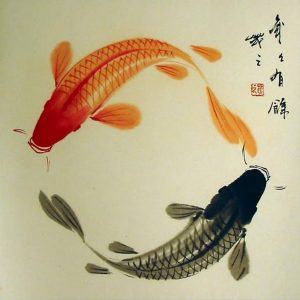by Akim Reinhardt

Old white men wearing ties can do anything they want.
-Mike Cooley, “One of These Days” (2001)
I am more powerful than I used to be, and it unnerves me.
I am a white man. And to be a white man in America is to have more power than women and people with darker skin. Just like rich people are more powerful than the poor, and heterosexuality holds more power than transexuality. I’ve been a white guy all my life, a half-century of it now, and for most of that time I’ve been aware that my skin color and increased testosterone endow me with extra power in our society. It’s been a learning curve, to be sure, one that I continue to climb as best I can. And the first lesson came at the hand of my father the only time he ever struck me.
Both of my parents suffered abuse as children, and when they made me and my sister, they swore they would not beat us. But there was this one time . . .
My father was working at a small, private school in the Bronx on a summer afternoon. The owners had hired him to repair a stone retaining wall. My father ran a small contracting business and often had one or two men working with him. Even though I was perhaps no more than six or seven years old, I knew this because I sometimes tagged along with him on jobs, like I had on this day. And so as I watched him labor and sweat beneath the hot sun, moving earth and lifting heavy stones, it occurred to me that normally he would have another worker to at least help with the worst of this grunt work. And indeed, there was another worker there. A black man who was close by, wearing work clothes and tending to some other manual task. So when my father let out a mild complaint about the weight of the rocks and the heat of the day, I offered what I thought was a perfectly reasonable suggestion:
“Why don’t have you have the black man do it?”
He turned, eyes afire, and slapped me across the face.
He thought I was being racist in a way that reminded him of growing up in segregated North Carolina, where even a white child could openly suggest the ordering around of black people. He would not suffer that in me. He would beat it out of me, if necessary.
But as soon as my tears welled up, he regretted it. He understood.
Seeing this man stand near my father and work with his hands, I had assumed he was my dad’s employee, and that my father could assign him various tasks. In fact, he was actually an employee of the school, their groundskeeper; his laboring proximity to my father was merely coincidental. And the truth is, I was too young to have much of a racial consciousness. I hadn’t called him as “black” as some sort of racial commentary. The racist idea that black people should somehow be subservient to whites was still foreign to me. I had said “black” the way you might say “tall” or “young” or “skinny.” It was merely a descriptor.
But my father, shocked and angered at what he thought was the foul scent of racism upon me, had lashed out. And in so doing, we both learned a lesson. He, that pledging not to hit his children had been the right thing, and he would never do it again. Me, that there was something about being black and being white that I didn’t quite yet understand, but it was very real and fierce.
*
I could be wrong, but it seems to me that here in the 21st century, most white men do not actively ask for the added dose of power that comes with being white or male. This is not, after all, the Jim Crow South, or a time and place when white men actively dispossessed and even killed Indigenous people more or less at will. Any native born American under the age of 50, has grown up in a post-Civil Rights culture that openly espouses multicultural values. Racism and sexism are bad and wrong, the society insists. We are all the same. Anyone can grow up to be president.
But of course, that’s not how it actually works. The reality is that white men live in and move through a society that accords them a variety of advantages. White men have power. Not nearly as much as they used to. A marginally greater amount, perhaps, in many circumstances. But more. Yet that reduction of their (my) advantage has itself created a new set of problems: many white men no longer even recognize that they are more powerful than other people, perhaps even fashioning themselves as victims (see: Trump Supporter).
 This would have been unimaginable 75 years ago in any part of the country, regardless of the predominant minority. Whether it was African Americans throughout the South and in Northern cities; Latinos in the Southwest; American Indians in much of the West; or Asian Americans along the Pacific coast: every minority was so thoroughly subordinated that white Americans knew exactly where they stood, high atop the racial pecking order. And they acted accordingly. They used laws, social customs, cultural biases, and economic advantages to openly wield immense power over people with darker skin. No white person could rationally deny the power equation back then, and most of them had absolutely no desire to change it. Likewise, America’s version of European patriarchy was so staunch that women could not vote in most elections until 1920, didn’t get a legal (if ineffective) guarantee of equal pay until 1963, and full rights to use contraception until 1972 (Eisenstadt v. Baird, 405 U.S. 438,). And of course despite such victories, racism and sexism are still very much with us, as the recent #BlackLivesMatter and #MeToo movements attest.
This would have been unimaginable 75 years ago in any part of the country, regardless of the predominant minority. Whether it was African Americans throughout the South and in Northern cities; Latinos in the Southwest; American Indians in much of the West; or Asian Americans along the Pacific coast: every minority was so thoroughly subordinated that white Americans knew exactly where they stood, high atop the racial pecking order. And they acted accordingly. They used laws, social customs, cultural biases, and economic advantages to openly wield immense power over people with darker skin. No white person could rationally deny the power equation back then, and most of them had absolutely no desire to change it. Likewise, America’s version of European patriarchy was so staunch that women could not vote in most elections until 1920, didn’t get a legal (if ineffective) guarantee of equal pay until 1963, and full rights to use contraception until 1972 (Eisenstadt v. Baird, 405 U.S. 438,). And of course despite such victories, racism and sexism are still very much with us, as the recent #BlackLivesMatter and #MeToo movements attest.
Yet many white men are blissfully unaware. Working with reduced margins of advantage compared to prior generations, and living in a society that nay-says racism and sexism to the point that few are willing to admit, even to themselves, being racist or sexist, lots of white men live their lives blind to their own good fortune. The worst that stuff is past, they tell themselves, and that may actually be true. But that realization, and the narrative of progress that accompanies it, help white men delude themselves into believing that everyone stands on something close to a level playing field most of the time.
Thus, many white men gaze upon the horizon and fail to see the built-in advantages that this society has blessed them with. And even as they ignore their advantageous position, many of them come to expect it. They become accustomed to power. For power, whether sought or granted, is like any other miscreant lover. It demands eternal youth and desperately seeks to punish the souls of those who spurn it.
*
I have long tried to be mindful of my own enhanced power as a white man, and a straight one at that. It is not always easy. It is much more natural, perhaps, to notice slights than compliments. Pay me less, and I will feel cheated, readily identifying a system that is stacked against me. Pay me more, and I will believe I’ve earned it, and that I owe nothing to anyone.
Most of my own efforts to be mindful of the power I have as a white man have come not from the few wrongs done to me as a half-Jew in America. Rare have been the times when I suffered the unearned power of others. More often, sadly, I have misused my own arbitrary powers. Over the course of my already fairly long life, I have done, and more often said, dumb, hurtful things to people. Or simply talked over them and expected my words to have more value than theirs. I have very rarely spewed hate. But more than I care to admit, I have behaved badly, often unknowingly in the moment, which does not make it any better.
If I were given to defensiveness or self-congratulation, I might have ignored it all and simply patted myself on the back for being a successful, upper middle class person, pooh-poohing the legitimate critiques as the whining of losers. But I am glad to say that I have tried, at least now and again, to admit and learn from my mistakes, whether discerning them on my own or (more often) having them pointed out to me by others. I have endeavored to not transgress the same way twice. I have not always been successful, but I have tried and continue to try. That effort depends upon me recognizing the good things that have fallen into my lap by nothing more than the luck of birth.
I know that I am confident, secure, and self-assured. Perhaps some of that is my born personality. Much of it, no doubt, is because I was loved as a child. The rest comes from simply being white and a man. It is much easier to be white and male than not, and this society normalizes and rewards whiteness and masculinity in ways that are often subtle but highly effective. Those rewards include power and respect.
As a white man, that marginal increase in power and respect is so prevalent that it risks becoming like water to the fish, a thing you quickly do not even notice despite needing it so desperately to define and understand yourself. Try as one might to remain aware, it’s easy to be lulled into a sense of normality. This is just how it is. You’re more confident about speaking up. You quite reasonably expect to be taken seriously. These things are commonplace, so much so that it’s the rare instance of being cowed or dismissed that stands out to you. Be treated well and you barely notice. But any small adjustment in that power equation is jarring.
I have, of late, been jarred.
*
I recently turned fifty. And during the last year or so, I’ve noticed a subtle change. People are more respectful towards me. Worst of all, people are more scared of me. Not all the time. Just once in a while. Circumstantially. But it is real, and I do not like it. So far as I can tell, it has happened for one reason: Because I am a white man of a certain age.
My beard is now thoroughly gray. A splash of soft white has crept up to my temples, framing my otherwise dark, curly hair. Some permanent lines lightly score my face. I am past the point that anyone could ever again mistake me for being in my thirties. In short, I now look like a member society’s most powerful cohort: older white men.
Not an old white man, mind you. I know what comes next. Certifiable old age grinds down everyone’s social standing. If I live long enough, I will eventually become stooped over and shunted to the margins, reduced to something neither important nor threatening, at best some sort of pet to be briefly admired, patronized and then ignored. But for now? A firmly middle aged white male with a white collar air about him? Now, it seems, I am someone to be respected and even feared.
 It began with an up tick in people calling me “Sir.” By and large, Baltimore is not a “Sir,” and “Ma’am” kinda town. Like all college professors, I am accustomed to a certain level of deference on campus, being called “Professor” or “Doctor” by students and staff, although simply by my virtue of my whiteness and masculinity I get more deference than my female and minority colleagues. Away from the university, however, I don’t usually strike the most formal pose and have never fashioned myself a Mister, much less a Sir. So I took note when such signs of respect increased.
It began with an up tick in people calling me “Sir.” By and large, Baltimore is not a “Sir,” and “Ma’am” kinda town. Like all college professors, I am accustomed to a certain level of deference on campus, being called “Professor” or “Doctor” by students and staff, although simply by my virtue of my whiteness and masculinity I get more deference than my female and minority colleagues. Away from the university, however, I don’t usually strike the most formal pose and have never fashioned myself a Mister, much less a Sir. So I took note when such signs of respect increased.
My initial reaction was to assume it’s simply because I’m growing older, and getting called “Sir” in much the same way women get called “Ma’am” as they age. However, I’m not getting “Sir” just from younger people. It’s also from older women. It’s from people of color of various ages. It’s even, once in a while, from white men my age or older if they’re in a service position. It’s not happening all the time, and probably not as much as it might given my proclivity for blue jeans and t-shirts. But I do hear it more than ever before, and I hear it quite a lot on those rare occasions when I’m out on the town dressed in so much as slacks and a collared shirt.
I generally don’t stand on formality. I detest compliments, and I despise hierarchies. So the Sir thing makes me slightly uncomfortable, even when it’s meant with the best of intentions. But what has saddened me beyond words is the fear I see in people.
It’s rare. But it has happened a handful of times in the last year. I can see someone becoming scared of me. The irony is at once profound, tragic, and revealing. Just as my physical power is declining, I am becoming more socially powerful. I am now an older white man, possibly in business clothes, and that means I look like the most powerful and dangerous type person in America. I look like the kind of person who has money and connections. I look like the kind of person who could reward you for a good deed, or more likely, make your life miserable for a spell if you cross me. Physically, few need be concerned. But socially? I look like that person who could hire a lawyer to sue you, who could contact your boss and get you reprimanded, who could call the cops and have them immediately take my side. I have seen this look in some people’s eyes. They have sized me up. And they get worried if my demeanor turns.
As a skinny, shy kid in the Bronx during the 1970s-80s, I needed to develop defense strategies. Humor was a good one. So was just running very fast. In my late teens I also cultivated a slightly menacing stare that implies unhappiness and a dash of anger. I rarely direct at anyone, but rather wear it like a mask. Lips closed, jaw clenched, eyes slightly narrowed beneath a tensed brow. My voice, if called into action, becomes clipped and stern. I found this visage to be handy when riding the subway during off hours or walking in certain places. It doesn’t come very naturally to me, and I generally have to muster a modicum anger to make it convincing. As an adult I’ve used it rarely, but it does get summoned on occasion as a defensive posture.
In the past, that look usually had its desired effect: people tended to ignore me, grant me a little space. It never garnered much in the way of direct reactions, instead merely surrounding me in an aura of unwelcomeness. Until now. Now, if I put on that face, with my gray beard and slacks and dress shoes, there is a chance someone will become worried that they might get in trouble. Even more so if I actually happen to display mild anger about the day’s trifling snafu.
To see someone react that way is heartbreaking. Sickening. Awful. And a slap of awareness about just how fucked up our society is in some ways. Like my father’s hand all over again, re-teaching me an important lesson from a new vantage point.
These particular showings of respect, honor, and fear are signs of a troubled society burdened by old power dynamics that have faded but hardly disappeared. There remains much work to be done. And that I might have more power than others simply by virtue of my gender and skin color is a scourge on us all.
Akim Reinhardt’s website is ThePublicProfessor.com
